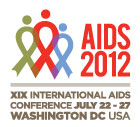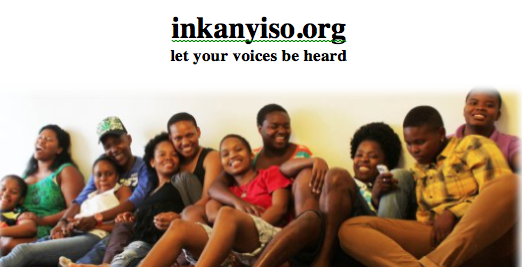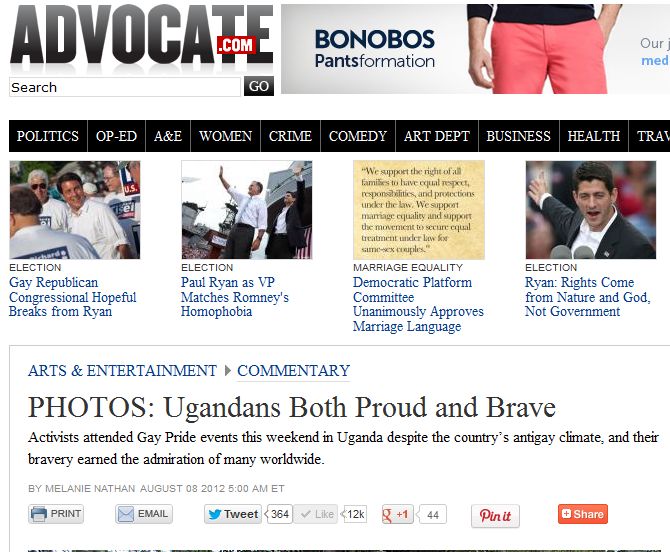 Saturday, 21 July, 2012 (Washington, D.C.) – On Sunday, 22 July 2012, a Satellite Session organized by UNAIDS and Republic of Korea, at the AIDS 2012 conference in Washington, D.C. from 9-11am in Mini-room 7, will discuss the latest developments and challenges of HIV travel restrictions around the world.
Saturday, 21 July, 2012 (Washington, D.C.) – On Sunday, 22 July 2012, a Satellite Session organized by UNAIDS and Republic of Korea, at the AIDS 2012 conference in Washington, D.C. from 9-11am in Mini-room 7, will discuss the latest developments and challenges of HIV travel restrictions around the world.

World map of travel and residence restrictions against people living with HIV/AIDS. blue: no specific entry and regulation targetting people with HIV/AIDS. orange: information is contradictory, restrictions are possible. red: entry and residency restrictions confirmed. gray: no information on the situation in the country. (Photo credit: Wikipedia)
To date, there are still 46 countries, territories and areas that apply some form of restriction on the entry, stay and residence of people living with HIV (“HIV-related travel restrictions”). In many cases, these restrictions were put in place when there was great fear and little knowledge about how HIV was transmitted and what the health implications were of being HIV positive.
Public health and human rights experts have called for the removal of such restrictions for many years, characterizing them as discriminatory and ineffective to protect public health. Now, with significant advancements in scientific knowledge about HIV and its prevention and treatment, even more reasons to remove such restrictions have become apparent.
Dr Paul de Lay, Deputy Executive Director of the UNAIDS Programme said “Every individual should have the right to freedom of movement, regardless of their HIV status. UNAIDS is opposed to any restriction imposed on people living with HIV and restricting movement only on the basis of their HIV status. These restrictions are discriminatory.”
Besides being discriminatory, travel restrictions have no public health justification. Often they open the door to additional forms of abuse including violation of the human rights of people living with HIV and an increase in stigma. HIV should not be considered a condition that poses a threat to public health in relation to travel because, although it is transmissible, HIV cannot be transmitted by the mere presence of a person with HIV in a country or by casual contact.
Objectives of the Satellite Session:
Key figures from governments, the medical field and civil society, including people living with HIV, will discuss and respond to the current situation regarding HIV-related travel restrictions. The Satellite Session HIV Travel Restrictions: Latest Developments will present an open discussion about HIV travel restrictions, highlighting their public health and human rights’ impact. The session will provide global, regional and national perspectives on such restrictions, focusing among others on presenting:
· An overview of the global situation
· Current efforts to remove HIV travel restrictions in the Republic of Korea
· A testimonial of someone who has experienced HIV travel restrictions
· The experience of removing HIV travel restrictions
· The impact of HIV travel restrictions in the Gulf States on migrant workers from Asia
Call for action:
In line with commitments made in the 2011 Political Declaration,theSatellite Session will call on governmentsto remove HIV-related travel restrictions and ensure that an effective and rights-based approach to HIV is in place in all countries.
IAS President Dr Elly Katabira, Professor of Medicine at Makerere University in Uganda, said “The return of the conference to the United States is the result of years of dedicated advocacy to end a misguided policy based on fear, rather than science, and represents a significant victory for public health and human rights.” Dr Katabira is the International Chair of AIDS 2012.
The Obama Administration lifted HIV-related travel restrictions in 2010.
Co-chairs:
· Professor Myongsei Sohn, Dean, School of Public Health – Yonsei University, Republic of Korea
· Dr Paul De Lay, Deputy Executive Director, UNAIDS
Organiser:
· Korea Center for Disease Control and Yonsei University School of Public Health, UNAIDS
Speakers:
· Susan Timberlake, Chief, Human Rights and Law Division, UNAIDS
· Bong-hyun Kim, Deputy Minister of Foreign Affairs and Trade and Dr Dukhyoung Lee, Director General of Disease Prevention Centre, Centre for Disease Control, Republic of Korea
· George Bartolome,United Western Visayas Inc.
· Representative of US –tbc; and Representative of Ukraine – Dr Maryna Zelenska, Ministry of Health
· Malu Marin, CARAM Asia
Related articles
- World´s leading HIV/AIDS Experts to gather in Washington D.C.on HIV Cure (oblogdeeoblogda.me)
- AIDS 2012 Announces IAS Research Prizes (oblogdeeoblogda.me)
- Fight against AIDS Visionary and Dedicated Leadership Award by IAS for IAC 2012 (oblogdeeoblogda.me)
- UNAIDS at Opening of The International AIDS Conference 2012 (oblogdeeoblogda.me)




















 PoochParkWear customizes hoodies and t-shirts, the good, the naughty, the in between, whether proud or quirky let them be seen. We also offer biker jackets, croc or pleather collars, a variety of collar charms, and our special Zinja beaded collars made by a co-op of HIV-positive South African women, the Sisonke women who weave the beads onto the collars.
PoochParkWear customizes hoodies and t-shirts, the good, the naughty, the in between, whether proud or quirky let them be seen. We also offer biker jackets, croc or pleather collars, a variety of collar charms, and our special Zinja beaded collars made by a co-op of HIV-positive South African women, the Sisonke women who weave the beads onto the collars.

Trackbacks/Pingbacks
[…] Read more Share this:FacebookPrintEmail This entry was posted in Health/Mental Care, International News and tagged AIDS, HIV/AIDS by Victoria. Bookmark the permalink. […]